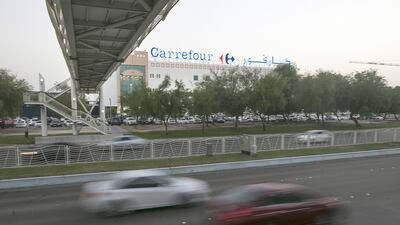In your news story, World Health Organisation wants UAE to lower speed limits to 50 kph (November 20), Tami Toroyan seems to be well-intended but what she advocates does not take into account relevant local factors.
Despite having official reports stating that the leading causes of road deaths are “speeding without taking into account road conditions, sudden swerving and failure to leave sufficient space between vehicles”, she focuses primarily on speeding.
This is the favourite word of non-car people. Her philosophy seems to be if you go fast, you’ll die but if you go slow, nothing can happen – even if you are texting, applying make-up, arranging the shopping bags in the back seat or driving centimetres from the car in front, completely oblivious of anything happening in the other lanes or 100 metres ahead.
It doesn’t matter to her that all the other words are describing the real problem: bad driving habits.
This is a real problem at any speed. I believe her work should focus instead on helping the world produce better drivers, not creating worldwide traffic jams.
Name withheld by request
I believe the solution lies in not building roads that are like racetracks, providing more intersections where drivers come to a complete stop, and more public transit.
How often have I been almost run over by cars speeding through a pedestrian crossing where the signage clearly says to yield to pedestrians?
I’ve even had a man almost run me over when I was walking on the pavement as he was pulling into his car park. When drivers are crossing a pavement, it should be obvious the pedestrian has the right of way.
Chris Reid, Dubai
The real issue is not the speed limit – it’s how road users value their lives and those of the others sharing the road with them.
I believe the real issue is the manners, morals, norms, culture, education etc of all road users.
Morphed Parkook, Dubai
It’s time we sued bigots on planes
I read with indignation about some passengers being initially stopped from flying because another passenger became fearful about being on the same flight (Two men kept from boarding US flight for speaking Arabic, November 22).
Excuse me, but if the worried passenger is concerned about fellow passengers speaking Arabic, shouldn’t he ask the airline to be put on another flight and not the two guys speaking Arabic?
It’s time to start lawsuits for this kind of conduct.
Mohamed Kanoo, Abu Dhabi
City knowledge first, then Wi-Fi
Your editorial, Wi-Fi in taxis will be a boon for visitors (November 22), makes the case in favour of all taxis having Wi-Fi but I think a higher priority should be to ensure taxi drivers know how to get to their passengers' destination.
I’ve had drivers ask me how to get to Saadiyat Island and even how to reach Delma Street, so Wi-Fi in taxis is not as important to me as putting in a GPS system and teaching the drivers how to use it.
Jean Ng Lewis, Abu Dhabi
I think Wi-Fi services on public transport would be a great idea.
I expect it would make taking the bus a more attractive and favourable form of transportation.
Obaidallah Elhassan, Abu Dhabi
I’d much rather be able to pay for the taxi with a credit card than have Wi-Fi.
Shannon Soesbe, Dubai
Advertisements spoil our cities
The UAE has very strict advertisement regulations but these are often violated in two ways.
The first type advertises accommodation and can be seen on lamp posts and walls in public places. It is spoiling the neatness of our cities.
The second type involves business cards for massage centres, often featuring half-naked girls, put on parked cars.
Both affect the image of our cities and I call on the authorities to do something about it.
K V Shamsudheen, Sharjah
Perfect way to honour heroes
With regard to your story, Volunteer programme to honour UAE heroes (November 21), I think this is a noble initiative for the fallen sons of the UAE.
The video booth message would go a long way to convey the message at the proposed martyr memorial in Abu Dhabi.
Name withheld by request

